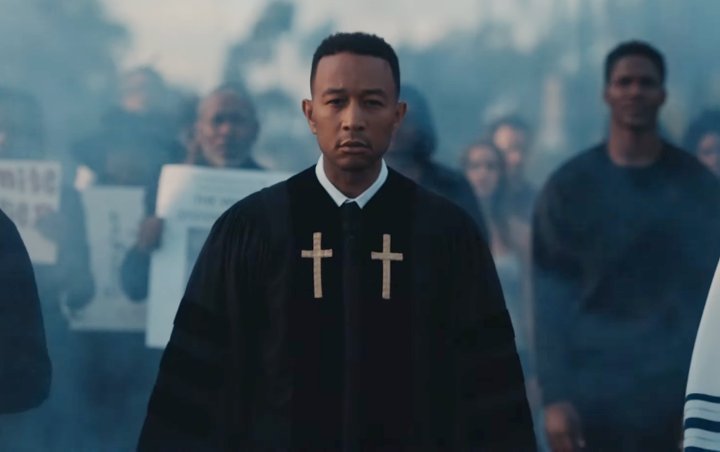The year was 2019.
John Legend, like so many Americans, felt distressed and overwhelmed when he watched the news, as he sings about in this song, “Preach.” Written by Greg Kurstin and Sarah Aarons, “Preach” was released as a single in 2019, which was an eventful time in both the United States and the world.
This song and its music video highlight a variety of topics (including police brutality, BLM, inner-city violence and poverty, etc.), but this podcast specifically focuses on the song in terms of gun violence in schools. When “Preach” was released, It had been about a year since the Parkland school shooting, one of the deadliest school shootings in the United States’s history. It is the deadliest high school shooting in United States’ history, surpassing Columbine by two victims.
(Trigger warning for below video: gunshots, screaming, violence)
One would think that after this massacre (among many others), our country’s gun laws would be changed or at least reviewed extensively, but they had not. Politicians continued to send “thoughts and prayers” to the victims’ families and friends, yet no action was being taken to prevent a similar event from occurring again. Legend has said on numerous occasions that this song, inspired by the survivors of the Parkland shooting, is a direct aim at American politicians who do not tackle America’s gun laws aggressively enough.
A week after the Parkland school shooting, victims, survivors, and their families alike gathered in the Oval Office for the biggest PR stunt of all time: a conversation with former President Trump about the need to enact gun reform laws immediately. The former President listened as parents described the guns that killed their children with an unchanging, emotionless face.
One student called out the President on the ridiculousness of the United States’ gun laws by explaining how he heard of a person who bought an AR-15 rifle with an expired ID the day before this meeting.
“How is it that easy?” the student asked Trump.
How many more mass shootings need to happen for gun reform in this country to happen? At the time of the recording of this podcast, there have been five school shootings in the four months since 2021 has started. Shootings occur in and out of our schools; guns are everywhere in this country.
It seems that we have chosen the Second Amendment (the right to bear arms) over the lives of our children.
Let’s consider if Legend’s song means much in terms of change, though. Do any of these protest songs really do much in terms of tangible change? That is a dark rabbit hole to go down. The question to ask is not whether they create change, rather, maybe the question is whether they are meaningful in the sense of the hope they can bring.
“Preach” became an anthem for the March for Our Lives protests that occurred in response to the Parkland school shooting. For one of the first times ever, students became activists and were not afraid to stand up to politicians and use their platform as survivors to call on the government to reform our gun laws. One of the faces of the March for Our Lives protests was Emma Gonzalez, a Parkland shooting survivor. She is known for her devastating yet impactful speech at the March for Our Lives protest in Washington DC.
“Fight for your lives before it’s someone else’s job.” -Emma Gonzalez
What if our country cared more about the national gun epidemic as it seemed to care about the coronavirus pandemic? Guns take more lives than the coronavirus does every single day. Don’t get me wrong, the coronavirus is tragic and extremely important in our society right now, but I want to see ACTION in terms of our gun laws just like I now witness action with the coronavirus vaccine rollout.
At the end of the day, Legend’s song was meaningful, especially in terms of its effect on the aftermath of the Parkland school shooting and giving more space for the victims to become their own activists. This idea of starting conversation is what I think most protest songs are all about. Maybe it isn’t necessarily the “importance” of a given song, rather, but about the important conversation the song starts – just like “Preach” did.

Leave a Reply